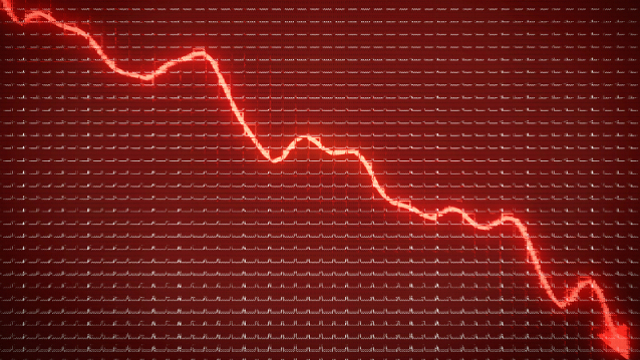Market snapshot: Tesla share crash and oil trigger sell-off
US tech stocks turned sharply lower overnight and an indicator of economic health is flashing red.
9th September 2020 08:11
by Richard Hunter from interactive investor
US tech stocks turned sharply lower overnight and an indicator of economic health is flashing red.

US markets returned with a whimper after the long Labour Day weekend, with concerns on faltering oil demand and further pressure on technology stocks leading a lurch downwards.
Oil is now down 41% in the year to date, fuelled latterly by a stalling recovery in demand and the possibility of excess supply. The price had stabilised to an extent over the summer months as the US driving season and significant oil imports into China halted the losses seen in previous months.
However, the recovery has paused, with China having stocked up its supplies and the US unable to maintain previous momentum, such that gasoline demand in the US is down around 10% from this time last year. As a possible precursor to global economic health, this particular trend will be closely watched over the coming trading sessions.
In the US, the bloated Nasdaq index was subject to further selling pressure after what has been a spectacular run. Apple (NASDAQ:AAPL) shares lost 7%, and elsewhere Tesla (NASDAQ:TSLA) dropped 21%, compounded by the fact that it failed to make the cut in becoming a member of the S&P 500.
There is yet to be a clear signal that the tech index has passed an inflection point, although the possibility remains that the pandemic-fuelled rise of the last few months may be easing as the world returns to some sort of normality.
Meanwhile, in the background, the increasing rhetoric ahead of the Presidential elections in November brings its own economic uncertainty, including the ongoing spat between the US and China which threatens to undermine investor sentiment. Further volatility is likely over coming weeks with holiday season now having passed, and next week’s Federal Reserve meeting will take on extra significance against this rather brittle backdrop, as will those of the European Central Bank and the Bank of England in the next few days.
All things are relative, however, and for the US the picture remains largely bright in the context of year-to-date numbers. The Dow Jones is down by just 3.6%, while the S&P 500 has added 3.1%. Despite its recent falls, the Nasdaq is ahead by 21% in 2020 and, stock specifically, Apple has added 55% and Tesla 290% in the year to date.
The FTSE 100 index has ironically received something of a prop over recent days given the weakness of sterling, which has been largely prompted by Brexit negotiation uncertainty rearing its head after some months of silence. Even so, the UK’s premier index remains down 21% in the year to date, and its status as an unloved investment destination for international institutional investors seems likely to persist, given any number of factors which suggest better value is to be found elsewhere.
These articles are provided for information purposes only. Occasionally, an opinion about whether to buy or sell a specific investment may be provided by third parties. The content is not intended to be a personal recommendation to buy or sell any financial instrument or product, or to adopt any investment strategy as it is not provided based on an assessment of your investing knowledge and experience, your financial situation or your investment objectives. The value of your investments, and the income derived from them, may go down as well as up. You may not get back all the money that you invest. The investments referred to in this article may not be suitable for all investors, and if in doubt, an investor should seek advice from a qualified investment adviser.
Full performance can be found on the company or index summary page on the interactive investor website. Simply click on the company's or index name highlighted in the article.